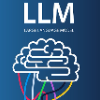Aligning large language models (LLMs) with human preferences has been recognized as the key to improving LLMs' interaction quality. However, in this pluralistic world, human preferences can be diversified by people's different tastes, which hinders the effectiveness of LLM alignment methods. In this paper, we provide the first quantitative analysis to verify the existence of diversified preferences in commonly used human feedback datasets. To mitigate the alignment ineffectiveness caused by diversified preferences, we propose a novel \textbf{M}ulti-\textbf{O}bjective \textbf{Re}ward learning method (MORE), which can automatically adjust the learning gradients across different preference data sources. In experiments, we evaluate MORE with the Pythia-1.4B model on five mixed human preference datasets, on which our method achieves superior performance compared with other baselines in terms of preference accuracy and prediction calibration.
翻译:暂无翻译




